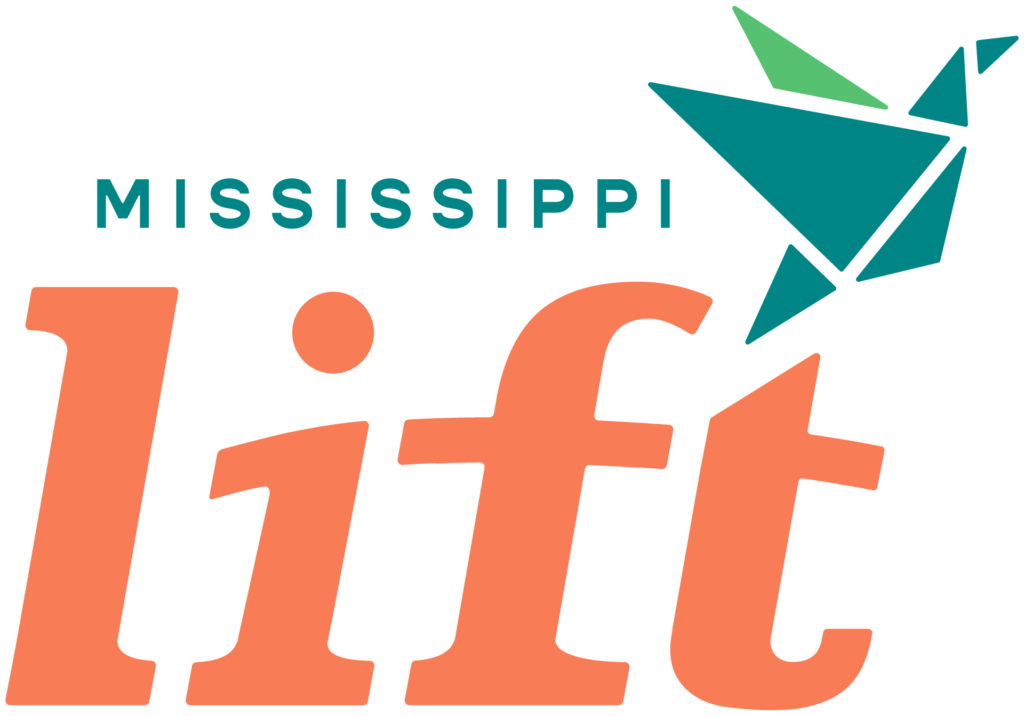Teachers & Programs
You are a brain builder!
Early child care providers play a vital role in laying the foundation for strong brain development.
Today’s children are tomorrow’s neighbors, leaders, and workforce. By making sure Mississippi’s children get off to a strong start, we set the stage for our state to realize new possibilities.
You play a special role as someone who works with young children on a daily basis. By giving them time, attention, and engaging in back and forth “serve and return” interactions, you can build their brains and support healthy development. We’re here to help. You already have what it takes to make a positive impact in the lives of infants, toddlers, and preschoolers. We give you tools that help you build little ones’ brains and help you talk with parents about your students’ progress.
Teachers
Early childhood classrooms are full of rapidly growing little minds.
The earliest stages of life have everything to do with later ability to thrive. The architecture of the brain is built from the bottom up, with intense construction going on from infancy through age five.
In the early years, children develop many different types of important skills, laying the foundation for later learning and abilities. The things young children learn to do at certain ages are called developmental milestones. For example, in the first months of life, babies fix and focus their vision and start to move their muscles intentionally, setting them up to explore the world around them. The experiences and environments around young children shape this development.
A short lesson on neurons.
Each day in Mississippi, about 100 new babies are born across the state. These new lives are full of tremendous potential. In the earliest years of life, the brain makes 1 million new neural connections each second. Wow! That’s why this time period is so crucial for lifelong learning. As these connections are established during early childhood, experiences and environmental factors play a huge role in laying the foundation for all future learning, behavior, and health.
Visit here to learn more about brain development.
It’s amazing how brains develop.
This video about the architecture of the brain illustrate how they work and why their growth is so crucial in early childhood development. Have fun learning more by playing The Brain Architecture Game, a tabletop game experience that engages players in understanding how early experiences shape brain development.
5 ways you can make a difference teaching and caring for little children
Find easy, fun ways to help your student thrive.
Marking Milestones
Mark milestones like first steps and first words as your little students grow. Knowing expected developmental milestones (things that usually happen at certain ages) for each age helps you celebrate each child’s growth and also notice when a child does not reach a milestone at the expected time. Don’t worry when this happens, but don’t wait to talk to the child’s family or other professionals either. It’s important to notice and take action.
Building Brains
Be a brain builder by turning everyday activities like snack and lunch time or changing diapers and carpet time into moments that help brains grow. Back and forth, “serve and return” interactions build the brain. Get free tips and ideas to help.
Talking, Reading, Singing
Talk, read, and sing to the little ones in your class, even if they are not old enough to talk back yet! It develops communication skills by helping children connect to the people, places, and things around them. Click here for free materials and ideas for simple conversation starters.
Positive Interaction
Focus on having positive back-and-forth interactions with children to help them develop the social-emotional skills needed as they grow. There are ways you can even turn challenging behaviors into positive interactions. Check them out here.
Connect with Families
It’s important to discuss a child’s growth and development with families. If there is a concern about a child’s development, encourage families to ask their health care provider for a developmental screening. Teach your parents about how they can be brain builders at home too!
Get to know developmental milestones and how you can encourage healthy development.
Here are a few examples of what milestones look like:
9 Months
A milestone expected at 9 months is that a child uses a finger to point at things.
To encourage development, talk about what he/she wants when he points at something.
18 Months
A milestone expected at 18 months is that a child points to show others something interesting.
To encourage development, blow bubbles for him/her to pop. Point to an name pictures in books.
2 Years
A milestone expected at 2 years is that a child begins to sort shapes and colors.
To encourage development, help him/her do puzzles with shapes, colors, animals, etc., and name each piece.
Access the CDC’s developmental milestone page or download our Mississippi Thrive Milestone Checklist to view more milestones.
Talking with Parents About Young Children’s Developmental Progress
Find great tips for discussing developmental concerns with moms and dads. Here’s a few helpful reminders:
ALWAYS
Talk about development regularly with parents.
Share resources, including milestone checklists.
Use good listening skills.
WHEN YOU HAVE CONCERNS TO SHARE
Highlight the child’s strengths.
Be well prepared.
Encourage the parent to share any concerns with their healthcare provider.
Be sure to follow-up with the family.
Share information with parents if they’re concerned about their child’s development.
For children younger than age 3, begin with First Steps Early Intervention program through the Mississippi State Department of Health at 1-800-451-3903 or by clicking here.
Children age 3 and older in need of developmental services can be linked to Child Find through the Mississippi Department of Education which offers services and interventions for unique educational needs. Call your local school district to connect with the Child Find Contact in your area.
Both services are available at no cost to families.
Encourage parents to ask their health care provider for a developmental questionnaire.
Pediatricians, family doctors, and nurse practitioners can help mark milestones and look for any concerns by asking a formal set of questions about typical behaviors. Encourage parents to ask for these developmental questionnaires, called screenings, at well-child visits for 9, 18, and 30 month olds or any time there is a concern.
Access our resources and materials for child care providers!
Find resources to support the early development of the children in your care.
Vroom
The perfect way to help teachers help their infants, toddlers, and preschoolers.
Vroom is a great resource full of free, easy-to-use tips and activities teachers can use to help their little students learn and grow. Check out some of their helpful videos here, and checkout our MS Thrive Vroom flyer for teachers.
Free questionnaires to check children’s development
Mississippi Families for Kids’ Help Me Grow program provides free questionnaires to check children’s development!
Help families learn important information about supporting their child’s brain architecture. Visit our resource page to access free videos to share with parents individually or in group settings.
Access free training modules for the professional development of early childhood educators/providers.
Use our interactive county resource maps to find early child development resources near you.
Learn the signs
Know the signs so you and parents can act early. Plus, get free materials for your classroom.
The CDC’s “Learn the Signs. Act Early” program offers free, research-based resources to help you monitor children from age 2 months to 5 years. They provide free educational materials to share with others, along with online training for teachers with CEU accreditation.
Contact Mississippi’s CDC Learn the Signs. Act Early. Ambassador for materials and training:
- Leslie LaVergne, Ph.D.; Director, Wellness Programs; MS Ambassador, CDC Learn the Signs. Act Early. The Institute for Disability Studies; The University of Southern Mississippi; 601-266-6225; Leslie.LaVergne@usm.edu.
The Mississippi State Department of Health offers free training for child care professionals. Check out their training calendar here to find a training being offered near you: MSDH Professional Development
Mississippi child care providers, will an increase in income cause you to lose public assistance benefits? Try the new Program Eligibility Calculator and see!
Teachers & Child Care Providers
Services & Support
For additional information and guidance, be sure to seek out area supports like these:
- Request for On-Site Technical Assistance
- Mississippi Parent Training & Information Center
- Mississippi Family-to-Family Health Information and Education
- Mississippi Early Childhood Inclusion Center
- Help Me Grow hotline: 1-800-241-KIDS (5437)
- My Child Without Limits and Brave Kids
- Early Childhood Care & Development Center’s Resource & Referral Network: R&R Centers serve as training and idea centers for child care providers across the state.
- MELA's Early Learning Resources for Child Care Providers: One stop location for ECE policies, forms, regulations, guidance, discounts, and more
Teachers & Child Care Providers
Professional Development Opportunities
For professional development opportunities, check out these resources:
- Mississippi Department of Human Services’ (MDHS) LIFT-ED’s Professional Development Registry
- Mississippi State Department of Health – Child Care Provider Training Calendar
- Mississippi State Department of Health – Resource Guide for Child Care Providers
- Mississippi Department of Education
- Mississippi Early Childhood Association (MsECA)
- Barksdale Reading Institute Parent Academy Training
- Mississippi Families for Kids (MFFK) offers childcare providers access to the Incredible Years DINA Therapeutic Program.

